Putin’s popularity on the rise as populists take over Europe and the US
Global order as known within the last three decades is changing. With more global players emerging, the US hegemony comes to an end; soon, new rivalries and alliances will dominate. The current article discusses the systemic changes in the US-Russian relations after Trump’s election, the rise of populism and the spread of the Russian propaganda in the West.
Systemic changes bring new alliances or distance old ones
A new era has risen for Russia in global politics. With Putin in power, his country became a global emerging market with significant global growth. After the 2014 reclamation of Crimea and the military intervention in Syria, an old global player is reborn (Lukyanov, 2016). While provoking West’s anger, Putin proceeded to Crimea’s annexation with the intention to protect Russia’s presence in Sevastopol’s port and prevent NATO’s influence in Ukraine- a tactic that could be followed again if mandatory to secure Russian interests in the region (Treisman, 2016).
As for the United States, the recent victory of the Republican candidate in the presidential elections – who claims to be an anti-systemic power against the traditional US political system – will mark ”the end of America as the anchor of a liberal international order” and will signify a new beginning of ”relationships in a post-American world” (Lake, 2016). During his presidential campaign, Trump advocated that once elected, he would cut down NATO’s financial support and reconsider his country’s contribution to international treaties.
Amidst these changes, the warming relations between Putin and Trump have taken many by surprise. A new US-Russian alliance could hurt the traditional North-Atlantic alliance for a number of reasons. First of all, Trump’s intention to lift the sanctions imposed on Russia would cause a violation of international law – a line that the EU follows (Birnbaum, 2016b). Second, Europe is already consumed by its own challenges; Brexit has already pushed the Union to its limits; fears of lifting Russia’s sanctions could pose an immediate threat to the Eastern countries.
In an attempt to end the firing in the Donbas region, the four foreign ministers of France, Germany, Ukraine and Russia met recently in Belarus. The talks revealed that both Kiev and Kremlin stay firm on their positions; Kiev blamed Russia for backing separatists in the area whereas Kremlin rejected the entrance of armed OSCE monitors in the conflicted zone. Of course, this development hurdles the implementation of the Minsk ceasefire accord and shows that- according to the French Foreign Minister Jean-Marc Ayrault – Kremlin’s true intention to divide not only Ukraine but also the entire world. For this reason, Europe needs to remain consistent (Euractiv.com with Reuters, 2016).
While populists gain ground in the West
While populists take over Europe and the United States, a new political system is surfacing. Mainly adopted by the far right, the success of this movement lies in its principles; first, it praises xenophobic trends; second, it stands against the old traditional parties that failed to confront current global challenges such as immigration and recession.
The first triumph came with the UK’s referendum of June 23rd; despite the warnings of the international institutions, Brexiters won; a victory that was credited to the far-right party of Nigel Farage. Next, it was the battle between Clinton and Trump in the US Presidential Elections; Trump’s election was a surprise for many and a clear failure of the opinion poll ratings to predict the winner.
While instability grows globally, the rise of populists in Europe could lead to a domino in the upcoming elections of many EU countries. In Italy, the resignation of the Prime Minister, Matteo Renzi, after the December 4th referendum increases the chances of triggering a new referendum to leave the Eurozone. In Austria, the far-right party of Norbert Hofer might not have won the elections but halts temporarily the wave of populism in the country. Next, the Netherlands may opt for a populist-led coalition in the 2017 March elections, as Trump’s victory ”makes populist politics more accepted” according to Kees Aarts, political science professor of the University of Groningen (Follain, 2016). Finally, populism has also hit Germany with the surge of the far-right party Alternative for Germany that expressed its support to Trump.
The Russian propaganda in Europe and the United States
Three years ago, the Russian leader stated in RT – known back then as Russia Today – that he wanted to break the Anglo-Saxon monopoly on the global media. If this statement reveals Putin’s plans for propaganda against the West, then how does it really work? In order to answer this question, it would be wiser to analyse any signs of its infiltration in the political system of the United States and Europe.
Starting with the US Presidential Elections, many blamed the Russian propaganda for Clinton’s defeat. In order to prove this claim, Washington Post released an article on 24th of November, according to which Russian experts used harmful techniques – such as hacking and trolling- across the web to damage Clinton’s profile (Timberg, 2016). By all odds, the latest release of CIA’s secret assessment on the American press concludes that the Russian intelligence interfered indeed in the US presidential elections (Entous et al,2016).
In Europe, Kremlin’s influence appears deeper and more complex; the newly elected, pro-Russian parties in Bulgaria, Moldova and Estonia seek closer cooperation with Kremlin; interestingly enough, Putin’s popularity grows also in countries with not so close historic ties with Russia. Taking France as an example, in its upcoming presidential elections of April 2017, it is very possible that the next French president will be a Russophile with Marine Le Pen running with the far-right party and Francois Fillon with the centre-right. From Germany’s perspective, there are examples of German officials with ties to Kremlin such as Guenther Oettinger -EU Commissioner- and Klaus Mangold – a businessman that was in charge of a lobbyist business group located in Germany (Bershidsky, 2016c).
To tackle the anti-EU propaganda including the Islamic State and Russia, the European Parliament passed a resolution earlier this November. More specifically, the hybrid warfare that Kremlin uses at EU’s expense targets the countries of the Eastern neighbourhood; erodes their European identity; divides its Member States and partners by supporting anti-EU and populist parties (European Parliament, 2016). In this context, the resolution recommends the deployment of a coordinated mechanism on strategic communications that will promote the key principles of the EU and will fight disinformation.
In relation to Russian propaganda, a recent article released by Vote Watch Europe highlighted the mixed feelings of the EU member states; Southern Europe – notably Italy, France, Greece and Portugal – appeared more sceptical towards the resolution, while Central and Eastern Europe supported this initiative. It’s worth noting here that the far-right voices including Nigel Farage or Marine Le Pen have expressed their opposition against the resolution.
Concluding, can we group Russia’s propaganda in the same team with the Islamic State? The same concern was expressed by a number of Members of the European Parliament (MEPs) that consider Russia as a valuable EU partner and demand a closer EU-Russia cooperation (European Parliament, 2016). Following Bershidsky’s argument, one can question whether all this fake news might have eventually triggered a meta-propaganda in the West such as the PropOrNot, a self-identified group of “concerned American citizens” towards the Russian propaganda.
Leading to a new status quo
As discussed above, all these changes are shaping a new multipolar system of global players that seek to form new alliances or reinforce old ones. Russia is stronger and back to the world politics game; Crimea’s annexation proved that Kremlin would do everything to defend its traditional sphere of influence in the post-soviet world. Plus, the intervention in Syria reveals Russia’s plans to recoup its influence in the Middle East as a way to secure its borders and refrain chaos in the neighbouring area.
Adding to that, many voices expressed the fear that a new cold-war era is emerging. Indeed, propaganda techniques – false information and hyperbolic assertions – that were widely used during the Cold War are now back; each front is trying to secure its territory by developing its own propaganda against its rival, while social and online media make it even easier to spread fake news all over the web. However, it is vital to distinguish the use of the ‘‘Cold War’’ term from the past rivalry between the US and the Soviet Union. In other words, a new dispute could occur between different global players that could escalate to a new Cold War status.
Besides, the US-Russian cooperation in Syria – the 2013 mutual plan to eliminate its chemical weapons and the agreement for a cease-fire – proved that the two superpowers could work together. Moreover, Trump’s succession as a new president of the United States could lead to a new partnership with Putin. The political solidarity between the two men grows stronger due to their similarities; they are both populists with xenophobic beliefs that aspire to make their countries great again and raised in a society of individualists with a high rate of income inequalities (Kaiser, 2015).
Beyond Putin and Trump’s approach, sooner or later all the Western allies including Europe will need to carefully plan their external policy and renegotiate their strategic relations with Russia. Decidedly, isolation is not a long-term solution; the rise of populists and the demand of many European politicians to lift Russia’s sanctions urges for a new alternative approach in order to solve the dispute and restore the partnership with Kremlin.
Photo: www.kremlin.ru [quoted in Global Panorama, Putin (2014)]. Source: (www.flickr.com) | Wikimedia Commons(CC BY 3.0)
Bibliography
Bershidsky L. (2016a) How Russian Propaganda Really Works in the West, Bloomberg View, 28th November, Available at: https://www.bloomberg.com/view/articles/2016-11-28/how-russian-propaganda-really-works-in-the-west (Accessed 6th December 2016)
Bershidsky L. (2016b) Vladimir Putin is Winning the French Election, Bloomberg View, 21st November, Available at: https://www.bloomberg.com/view/articles/2016-11-21/vladimir-putin-is-winning-the-french-election (Accessed 6th December 2016)
Bershidsky L. (2016c) Where to Look for Covert Russian Influence in the West, Bloomberg View, 18th November, Available at: https://www.bloomberg.com/view/articles/2016-11-18/where-to-look-for-covert-russian-influence-in-the-west (Accessed 6th December 2016)
Birnbaum M. (2016a) Divisions emerge in Europe on whether to do deals with Trump, The Washington post, 14th November, Available at: https://www.washingtonpost.com/world/europe/divisions-emerge-in-europe-on-whether-to-do-deals-with-trump/2016/11/14/ba7639fe-aa77-11e6-8f19-21a1c65d2043_story.html?utm_term=.763b9ecc7e95 (Accessed 7th December 2016)
Birnbaum M. (2016b) European leaders, NATO caution Trump on warming relations with Russia, The Washington post, 15th November, Available at: https://www.washingtonpost.com/world/europe/european-leaders-nato-caution-trump-on-warming-relations-with-russia/2016/11/15/1d10c7e8-ab3e-11e6-8f19-21a1c65d2043_story.html?utm_term=.dc425aa39289 (Accessed 7th December 2016)
Entous A., Nakashima E. and Miller G. (2016) Secret CIA assessment says Russia was trying to help Trump win White House Washington Post, 9th December, Available at: https://www.washingtonpost.com/world/national-security/obama-orders-review-of-russian-hacking-during-presidential-campaign/2016/12/09/31d6b300-be2a-11e6-94ac-3d324840106c_story.html?utm_term=.372e3511f1ec (Accessed 11th December 2016)
Euractiv.com with Reuters (2016) Ukraine peace talks end without agreement, Euractiv.com, 30th November, Available at: http://www.euractiv.com/section/europe-s-east/news/ukraine-peace-talks-end-without-agreement/ (Accessed 7th December 2016)
European Parliament (2016) Report on EU strategic communication to counteract propaganda against it by third parties (2016/2030(INI)), 14th October, Available at: http://www.europarl.europa.eu/sides/getDoc.do?pubRef=-//EP//NONSGML+REPORT+A8-2016-0290+0+DOC+PDF+V0//EN (Accessed 6th December 2016)
Follain J. (2016) After Brexit and Trump, Populists Target Next Dominoes in Europe, Bloomberg, 9th November, https://www.bloomberg.com/news/articles/2016-11-09/after-brexit-and-trump-populists-target-next-dominoes-in-europe (Accessed 6th December 2016)
Gotev G. (2016) MEPs draw map of pro- and anti-Russian countries in the EU, Euractiv.com, 25th November, Available at: http://www.euractiv.com/section/global-europe/news/meps-draw-map-of-pro-and-anti-russian-countries-in-the-eu/ (Accessed 5th December 2016)
Kaiser D. (2015) The history That Links Trump and Putin, Time.com, 28th December, Available at: http://time.com/4158801/history-trump-putin/ (Accessed 6th December 2016)
Kirchgaessner S. and Giuffrida O. (2016) Italian PM Matteo Renzi resigns after referendum defeat, The Guardian, 5th December, Available at: https://www.theguardian.com/world/2016/dec/04/matteo-renzis-future-in-the-balance-amid-high-turnout-in-italy-referendum (Accessed 7th December 2016)
Lake E. (2016) The ‘Trump Effect’: Allies and Adversaries Adapt to Uncertainty, Bloomberg View, 22nd November, Available at: https://www.bloomberg.com/view/articles/2016-11-22/in-trump-effect-nations-adapt-to-uncertainty-in-u-s-relations (Accessed 6th December 2016)
Lukyanov F. (2016) Putin’s Foreign Policy, Foreign Affairs, 95(3): 30-37, Available at: https://www.ebscohost.com (Accessed 6th December 2016)
Murphy F. and Knolle K. (2016) Austrians roundly reject far-right in the presidential election, Reuters, 4th December, Available at: http://www.reuters.com/article/us-austria-election-idUSKBN13S0W0 (Accessed 7th December 2016)
Stent A. (2016) Putin’s Power Play in Syria, Foreign Affairs, 95(1): 106-113, Available at: https://www.ebscohost.com (Accessed 6th December 2016)
Timberg C. (2016) Russian propaganda effort helped spread ‘fake news’ during election, experts say, Washington Post, 24th November, Available at: https://www.washingtonpost.com/business/economy/russian-propaganda-effort-helped-spread-fake-news-during-election-experts-say/2016/11/24/793903b6-8a40-4ca9-b712-716af66098fe_story.html (Accessed 6th December 2016)
Treisman D. (2016) Why Putin Took Crimea, Foreign Affairs, 95(3): 47-54, Available at: https://www.ebscohost.com (Accessed 6th December 2016)
Vote Watch Europe (2016) EU Votes to step up measures to counter Russia’s propaganda, but Southern Europeans do not agree, 25th November, Available at: http://www.votewatch.eu/blog/eu-votes-to-step-up-measures-to-counter-russias-propaganda-but-southern-europeans-do-not-agree/ (Accessed 5th December 2016)

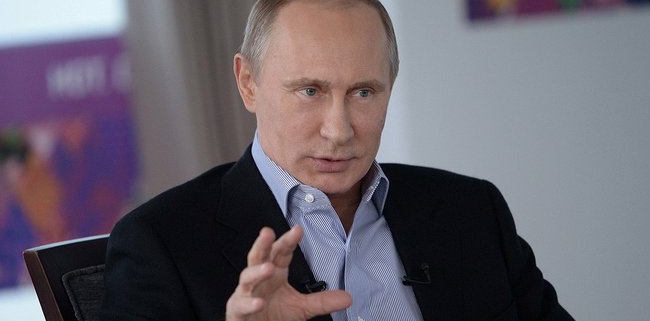

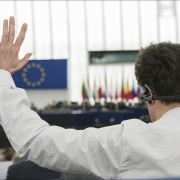
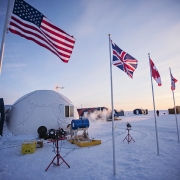 176th Wing Alaska Air National Guard's photostream
176th Wing Alaska Air National Guard's photostream 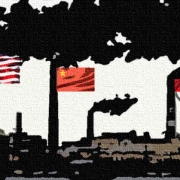
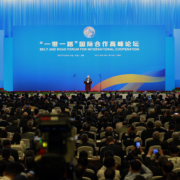
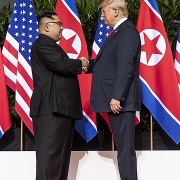



Leave a Reply
Want to join the discussion?Feel free to contribute!